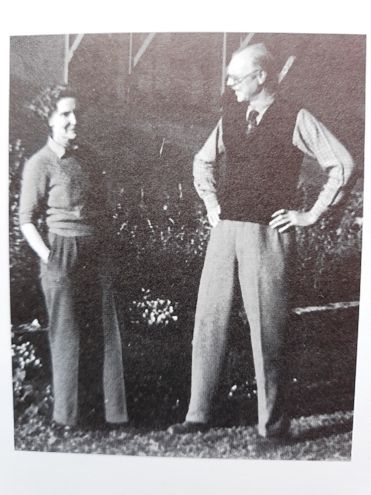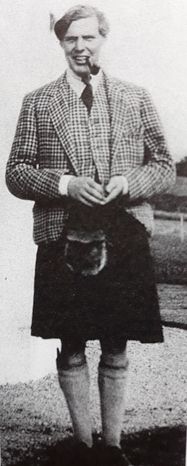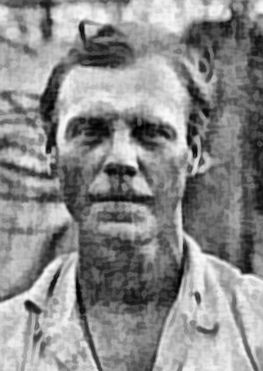Back to search results
Name: GRANT, Hugh Murray MBE, MC (Major)



Birth Date: 23 Jan 1897, bapt 21 Feb 1897 Chelford, Cheshire
Death Date: 16 Oct 1946 Loita Hills, Narok, killed by a member of the Engidong clan of the Maasai
First Date: 1925
Last Date: 1946
Profession: Roger Wilkinson's predecessor as D.C. Narok, appointed as a DO in 1930. DC Kajiado in 1939
Area: Kajiado, Narok, Nairobi, 1925 3rd KAR, Nbi, Limuru
Married: In Johannesburg 1927 Pauline Dorothy Dennise Buckeridge b. 24 May 1893 Parktown West, Johannesburg, d. 25 Nov 1982 Kenya [banns were read in Kiambu]
Children: Ian Guy Patrick (31 July 1928 Nairobi-9 Aug 2010 Nairobi); Anne (Goldsmith); Deirdre
Author: Gentle Warrior, a Life of Hugh Grant ed Anne Goldshith
Book Reference: Last Chance, Midday Sun, Staff 39, Lytton, Bwana, Golding, Reece, Vulture, KAD, Red 25, Red 31, Hut, Red 22, Bellers, Dominion, Nicholls, Chandler
War Service: Hut - Queen's Own Cameron Highlanders, Grant's 1st Irregulars
General Information:
Last Chance - (1948) - 'Accounts differ about this [his murder]. Some say that he was an impetuous Scot, too inclined to be high-handed with the Masai; others that he had been vetting inferior cattle all day which the guileful Masai had tried to get past his inspection, and that when it did come to this question of "the white cow", that he had been rightly exasperated beyond endurance. Anyway, he refused not to commandeer a white cow that a young Masai warrior begged him not to take. This white cow, it turned out afterwards, was one that this particular warrior loved passionately; he had hand-fed it since it was a calf. He came back to Major Grant time and again, offering him an increasing number of cattle; ten of the best of his other cattle, finally, if he would please not take this particular white cow. Grant was obdurate; he had agreed to accept substitute cattle several times that day, but now he had lost patience. He is said to have told the Masai to leave him alone, and ordered the white cow to be sent into the auction-pen. The young warrior went off and sat down on the ground beside his long, slender steel spear ... and Grant, turning his back, leaned over the rail of the entrance to the pen. (Some versions of this murder say it was over a black ox.) Suddenly, before anyone could be aware of what they were watching, the young Masai moran walked up behind Grant, took his stance, and sent the 7-foot steel shaft completely through him. Grant died instantly. The spear was sticking in an opposite rail, trembling. Two things went against that young Masai which prevented him making the excuse (not that he would have made it) that the murder was unpremeditated. The first was that he had greased his spear. Masai warriors grease their razor-sharp spears when they intend to use them on human beings. The second was that he belonged to this clan of the Engidongi - the witch doctors clan. He was hanged in Nairobi.
Bwana - George Adamson, Hugh Grant and Roger Courtney started a trading business on Lake Baringo buying goats and sheep from the Njemps and then selling them in the Highlands. ..... George had met Hugh on hunting expeditions - a fair, tall Highlander, was an active WW1 soldier with a double MC to his credit. ............ 1939 - DC at Wajir, raising an irregular force of Somali and Boran tribesmen to counter the Italian Banda .... Hugh Grant was a born leader and was in his element with such a force.
Golding - who had created Grant's Irregulars who gave valuable service as scouts and irregular troops during the advance, was awaiting my arrival to hand over the political responsibility of the area. Tall and handsome, Hugh was the sort of adult boy-scout the British produce when they go to war. He wore some foreign decoration on the right breast of his bush shirt and on later occasions when I met him in the bush he was often carrying a spear or bow and arrow in addition to his pistol and a colourful Somali shawl slung across one shoulder. ..... Hugh Grant gave me some very good advice, which I tried to follow during my next 23 years in Africa. Make no promises or threats that you cannot carry out, but if you do say you will do something make sure it is done. I say it was good advice, but this determination to keep one's word nearly caused a major riot and, in Hugh's case, ultimately cost him his life. Towards the end of the war Hugh was buying cattle on the hoof in Masailand for the Govt. On this occasion he had instructed a number of moran to bring one bullock each from their herd to sell to the Govt. something they were reluctant to do as they had little use for money and their lives revolved around and depended on their cattle. One young moran ignored the instructions, so Hugh seized the largest bull in his herd for sale. It is a belief among the Masai that the spirits of ancestors, the prosperity and health of the herd are all dependant on the herd bull. It seems that the elders tried to persuade Hugh to return the bull and if necessary take two others but Hugh was adamant, thinking that it would act as a punishment and example to others, and no amount of arguing would make him change his mind. I can only believe that he was ignorant of Masai customs and the importance of the herd bull. As he turned to walk away the moran who was later found to be a little unbalanced threw his spear which passed through Hugh's body killing him. A sad and unnecessary loss of a fine man.
Vulture - [Mervyn Cowie] - my great friend and instructor in the lore of the wilds, Hugh Grant ..…..
KAD 1922 - Capt. H.M. Grant MC, 3rd KAR
Bellers - Chapter 4 - Mandera - There was a tree opposite the house which was riddled with bullet holes, said to have been made by Hugh Grant who would fire at the tree whenever he left the house using two duelling pistols he kept on his belt. Dominion - Administration Cadet - 1930
Nicholls - Moyale - … eccentric Scot, Hugh Grant, later to suffer death at the hands of the Maasai, but here in his element among the warriors of the North.
Nicholls - Tall, fair-haired, blue-eyed and loose-limbed, Grant was a Highlander with a Scottish burr to his voice. Unorthodox in many ways, he indulged a favourite after-dinner pastime of shooting matchboxes off the mantlepiece. He had been in the administrative service in kenya since 1930, having previously served in the KAR from 1921 to 1925 and then farmed at Limuru. As an official in the NFD, he was effective though eccentric, but he was too stubborn, quick-tempered and inflexible to be a success in his posting in March 1946 as DC, Maasai Reserve. 'His inclination', said a colleague, 'was towards bringing about immediate conclusions rather than towards the exercise of tact and patience.' In order to promote a cattle cull stipulated by the government in 1946, Grant and his livestock officer bought cattle from Maasai chiefs, but on one occasion no cattle were produced voluntarily so the police seized 28 beasts for purchase. The Maasai asked for some of them to be returned and exchanged them for others. Karambu de Sendeyo, absent at the time the objections were made, appeared later and made a fuss about his confiscated bullock, wanting to replace it with another. Because matters had already been settled Hugh Grant refused to relent and the young Maasai moran (warrior), frustrated and angry, threw his spear at Grant's back. Maasai spears are 7 feet long, with 3 foot blades only one and a half inches wide throughout their length. The spear went right through the DC's body and killed him instantly. The Governor ordered compensation of 500 bullocks to be paid to Grant's wife and she used the £2,000 they fetched to help pay for the education of her children. Karambu de Sendayu was tried, found guilty and executed. At his trial he said his bullock was like a child to him - he had reared it from a calf, tended it like a mother and loved it dearly. Grant's funeral took place in the Ngong hills, where a pillar of rough-hewn marble was raised above the rave not far from that of Denys Finch Hatton.
Lytton - Friend of the Earl of Lytton in the NFD.
Bwana - DC at Wajir - 1939
Back to search results



